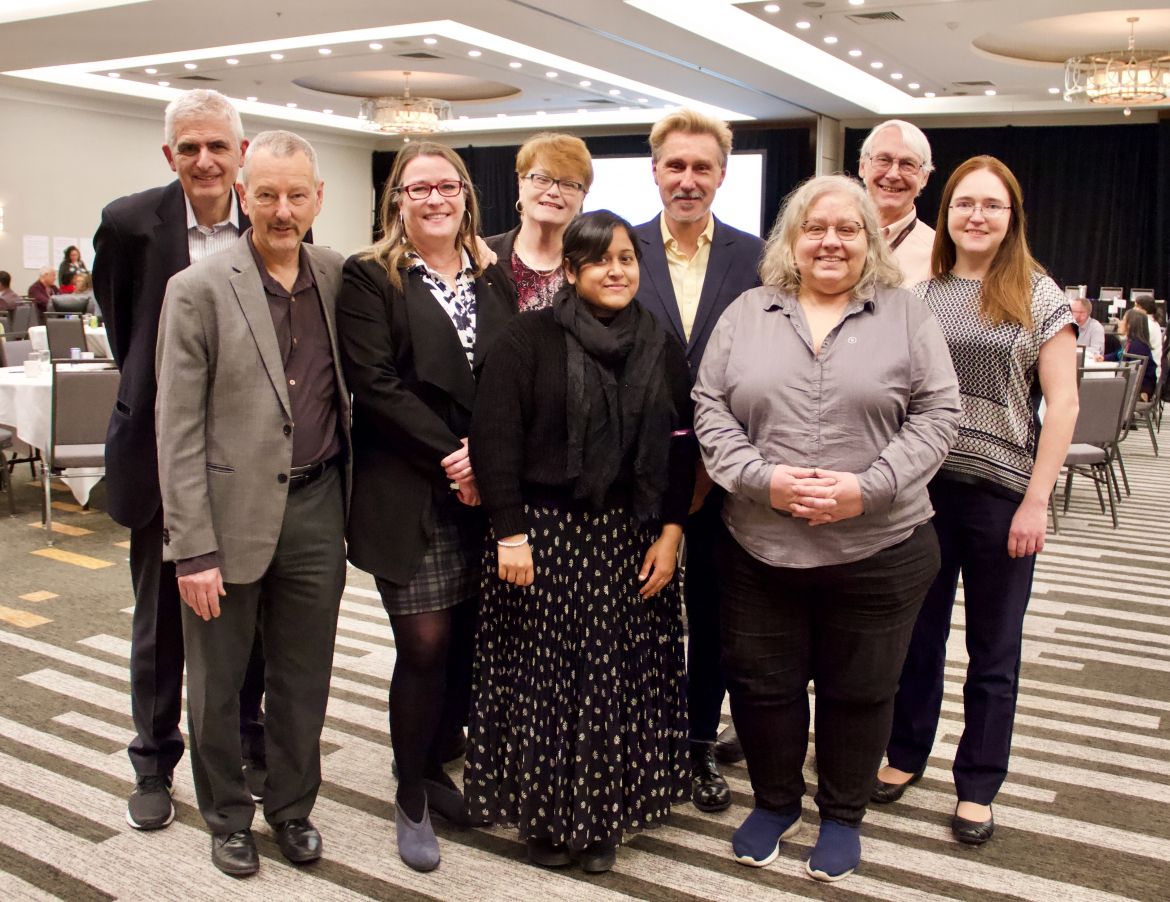Advocates of more accessible and inclusive labour markets for persons with disabilities are now promoting the adoption and implementation of a voluntary pan-Canadian strategy, released in late 2019 with a view to improving work opportunities for people with disabilities.
Moving Forward Together: A Pan-Canadian Strategy for Disability and Work was developed by the Disability and Work in Canada (DWC) Steering Committee over two years of extensive consultations with a host of stakeholders, including persons with disabilities, injured workers, disability organizations, service providers, government representatives, unions and labour organizations, employers and employer associations, researchers and others.
Institute for Work & Health (IWH) Senior Scientist Dr. Emile Tompa is a member of the DWC Steering Committee in his capacity as director of the Centre for Research on Work Disability Policy (CRWDP), a research partnership with its national office based at IWH. The DWC Steering Committee also includes representatives from the Canadian Council on Rehabilitation and Work, Inclusion NL and the Ontario Network of Injured Workers Groups.
With a vision of Canada as a country where people with and without disabilities have equal opportunities and choices in their careers, jobs and work, the strategy rests on two main pillars or objectives: 1) fostering disability-confident and inclusive workplaces, and 2) developing comprehensive supports for persons with disabilities.
Fostering disability-confident and inclusive workplaces involves initiatives that address workplace design, workplace accessibility, supports available to employers and workplace culture change. Developing comprehensive supports for persons with disabilities entails initiatives that focus on government supports for persons with disabilities, the navigability and alignment of support programs and school-to-work transitions.
Strategy launched at 2019 conference
Key components of the strategy were identified at the 2017 DWC Conference and a June 2018 federal-provincial/territorial policy roundtable, both held in Ottawa. A draft strategy was discussed at the 2018 follow-up conference. Input on the document was sought throughout 2019, via online surveys and in-person consultations held across the country. The final strategy was launched in early December at the 2019 DWC Conference, also held in Ottawa.

The 2019 conference focused on identifying key initiatives that could quickly and effectively be implemented, thereby building momentum for the strategy. Examples included developing workplace case studies, creating knowledge hubs or portals to help employers easily access accommodation resources, establishing and promoting the use of accessibility and disability management standards to remove barriers in the labour market, making the current disability tax credit a refundable program (so that low-income earners would receive the credit, whereas currently they do not if they don’t owe taxes).
In her remarks at the conference, the Honourable Carla Qualtrough, federal Minister of Employment, Workforce Development and Disability Inclusion, credited DWC for making the link between accommodating injured workers, with which employers are more familiar, and employing persons with disabilities.
I thought, ‘What a strategically innovative way to get employers comfortable with disability,’
she said. I think we’re going to be able to talk about inclusion and disability and accommodation a little differently now because of the work you’re doing.
Qualtrough also spoke of a sense of momentum and readiness for change. The Accessible Canada Act, which was passed unanimously in June 2019, was the only piece of legislation in the last session over four years that received all-party consent,
she noted. That’s because Canada is ready. We are ready.
Federal Deputy Minister of Public Service Accessibility Yazmine Laroche offered conference participants lessons learned on successful implementation, based on the work her office has done to date on implementing an accessibility and inclusion strategy for the federal public service.
Make it real. Make it easy,
said Laroche. She described examples of innovations currently being piloted. One is a workplace accommodation passport that details the accommodations needed by an individual and follows the employee across his or her career in government. Another is a centralized library of adaptive technologies for use by workers on contract. She also spoke of the importance of knowledge sharing. Don’t feel you always have to start from scratch. There are already people doing great things; we need to have easier access to them.
Steve Estey, an international disability rights advocate from the Council of Canadians with Disabilities, also spoke about the progress made to date when civil society uses Canada’s global commitment—namely its ratification of the United Nations Convention of the Rights of Persons with Disabilities—to hold governments accountable and to monitor their progress. The DWC strategy and conference are tangible examples of how civil society is rising to the occasion,
he said.
Long-time inclusion and disability rights advocate Mary Reid summed up the two-day conference. The strategy will take on a life of its own. Collectively in this room, we don’t own it. The country owns it. But we’re responsible, by being here through our passions and through our commitments, for taking this strategy and ensuring everybody across this country feels part of it and can feel equally proud of it,
she said in her closing remarks. It’s now up to us what we do as individuals or organizations to advance this strategy, to take it back to our workplaces, our colleagues, our supervisors and our communities.
To see videos and presentation slides from the conference, and the final conference report (available shortly), go to: www.crwdp.ca/en/national-conference-2019-disability-and-work-canada. Better yet, attend the next DWC Conference in Ottawa on December 1-2, 2020. Get on the DWC and CRWDP mailing lists to find out about initiatives underway, and to learn about future opportunities to get involved.